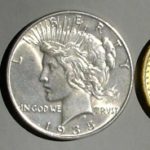Friday’s trade saw AUD/JPY within the range of 85.77-86.91. The pair closed at 86.27, gaining 0.21% on a daily basis. On September 17th the pair reached a daily high of 87.60, which has been the highest level since August 24th, when a high of 89.23 was recorded. In weekly terms, AUD/JPY went up 0.90%, marking a second consecutive week of gains.
No relevant macroeconomic reports and other events, which might influence AUD/JPY trading, are scheduled on Monday (September 21st).
Japan
Respect for the Aged Day Holiday
September 21st is the Japanese Respect for the Aged Day Holiday, which after 2003 is celebrated on every third Monday of September. On this day the media in the country report on the population and highlight the oldest citizens. Banks in Japan are to remain closed.
Correlation with Major Pairs
Taking into account the week ended on September 20th and the daily closing levels of the currency pairs involved, we come to the following conclusions in regard to the strength of relationship:
AUD/JPY to AUD/USD (0.8674, or very strong)
AUD/JPY to NZD/USD (0.5965, or strong)
AUD/JPY to USD/JPY (0.4415, or moderate)
AUD/JPY to GBP/USD (0.3156, or moderate)
AUD/JPY to USD/CHF (0.2135, or weak)
AUD/JPY to EUR/USD (-0.2320, or weak)
AUD/JPY to USD/CAD (-0.7705, or strong)
1. During the examined period AUD/JPY moved strongly in one and the same direction with NZD/USD, while moving strongly in the opposite direction compared to USD/CAD.
2. AUD/JPY moved almost equally in one and the same direction compared to AUD/USD during the past week.
3. The correlation between AUD/JPY and EUR/USD, AUD/JPY and USD/CHF was insignificant during the period in question.
Bond Yield Spread
The yield on Australias 2-year government bonds went as high as 1.947% on September 18th, after which it slid to 1.913% at the close to lose 0.004 percentage point on a daily basis, while marking a second straight trading day of decline.
The yield on Japan’s 2-year government bonds climbed as high as 0.026% on September 18th, or matching the high from the prior trading day, after which it fell to 0.019% at the close to lose 0.007 percentage point for the day. It has been the first drop in the past four trading days.
The spread between 2-year Australian and 2-year Japanese bond yields, which reflects the flow of funds in a short term, widened to 1.894% on September 18th from 1.891% during the prior day. The September 18th yield difference has been the most notable one since September 16th, when the spread was 1.953%.
Meanwhile, the yield on Australias 10-year government bonds soared as high as 2.791% on September 18th, after which it slid to 2.737% at the close to lose 3.7 basis points (0.037 percentage point) compared to September 17th, while marking a second straight day of decrease.
The yield on Japan’s 10-year government bonds climbed as high as 0.371% on September 18th, after which it slipped to 0.339% at the close to lose 3.2 basis points (0.032 percentage point) on a daily basis, while marking a second consecutive day of decline.
The spread between 10-year Australian and 10-year Japanese bond yields narrowed to 2.398% on September 18th from 2.403% during the prior day. The September 18th yield difference has been the lowest one since September 14th, when the spread was 2.370%.
Daily and Weekly Pivot Levels
By employing the traditional calculation method, the Monday pivot levels for AUD/JPY are presented as follows:
Central Pivot Point – 86.32
R1 – 86.86
R2 – 87.46
R3 – 88.00
S1 – 85.72
S2 – 85.18
S3 – 84.58
By using the traditional method of calculation again, the weekly pivot levels for AUD/JPY are presented as follows:
Central Pivot Point – 86.24
R1 – 87.59
R2 – 88.91
R3 – 90.26
S1 – 84.92
S2 – 83.57
S3 – 82.25





